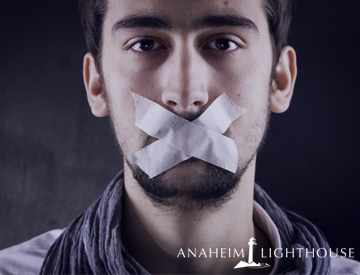When the Logic of Addiction is a Lie
Logically, addiction makes sense. When you have pain – any kind of pain, whether it’s physical or emotional or psychological – you fix it with a substance or a behavior, and you just keep doing that, over and over and over. When what you’re doing to numb the pain fails to do its job, you keep upping the quantity until you get the relief you need. Logical, right? The lie behind the logic is that addiction doesn’t really address the pain. It numbs it. Temporarily. The wound underneath the addiction is still there. It needs to be healed, not temporarily numbed. And in the end, of course, addiction itself brings on even more pain.
Recent studies show a clear link between traumatic experiences that cause long-lasting wounds and addiction. Examples of childhood wounds include abandonment, emotional or physical abuse, molestation, bullying, unrealistic expectations, or substance abuse within the family. Examples of adult trauma include divorce, loss of a loved one, military service during wartime, loss of income, or betrayal. When addiction is accompanied by psychological indicators like acute depression or anxiety, hypervigilance or lack of trust, true healing begins with uncovering the pain beneath the addiction. Medical professionals and therapists increasingly diagnose co-occurring trauma and addiction in order to treat not only the addiction but the wound an addicted individual is trying to relieve with addictive substances or behavior.
Social support is a key factor when it comes to healing from traumatic experiences. Encouragement and nurturing from family and friends are important, along with peer support, which can be can be specialized to address specific issues – for instance, there are support groups specifically for victims of child abuse and those geared for adult children of alcoholics and drug addicts. Stimulating the creative side of the brain has also been successful in healing trauma. From writing to dancing to drawing, creative activity can unearth emotions and resolve inner conflict. EMDR (Eye Movement Reprocessing and Desensitization) and CBT (Cognitive Behavioural Therapy) are also effective trauma therapies.
Addiction isn’t really logical. But it can be the best friend anyone ever had. It sounds the alarm that something’s going on inside that needs deep attention, not just a temporary fix. Then true recovery can begin.
Share your thoughts below or follow us on Facebook! If you or someone you know is struggling with addiction, call us at (877) 959-5909.














